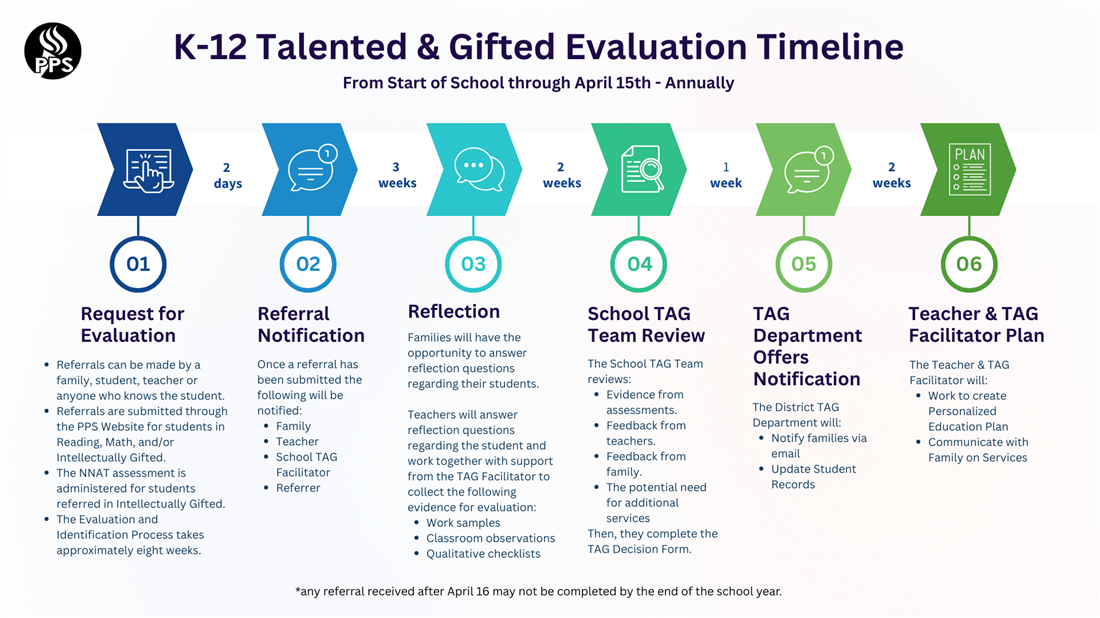-
Talented and Gifted Program
The Talented and Gifted Education program is responsible for overseeing, supporting, and monitoring the programming for Talented and Gifted students district-wide, in collaboration with school-based staff, district leadership, and other departments.
TAG Evaluation & Identification Process
-
TAG Identification Appeals
-
Vision Statement
Encouraged by the PPS equity policy and community input, we are investing in improvements like never before in our effort to create a program to meet the unique and diverse needs of all students. We will collaborate with all neighborhood schools to support programs where we can better address all TAG students’ needs, develop and nurture students who show potential for demonstrating high levels of critical thinking and establish a pathway to positive partnerships with families. TAG students will form a community of collaborative learners who have the skills necessary to positively impact the world around them.
-
District TAG Plan
-
Oregon Department of Education Final Order for Case #2019-MM-10
TAG Services
-
TAG School Facilitators List
-
Classroom Services
What are TAG Services? In PPS, classroom teachers provide TAG services through instructional practices that meet the rate and level of student learning needs. The PPS Instructional Framework identifies the components and indicators that every PPS student should experience
-
Personalized Education Plan (PEP)
Parents can request that a Personalized Education Plan is created that articulates the ways in which the classroom teacher is meeting students' needs in their identified area of giftedness.



